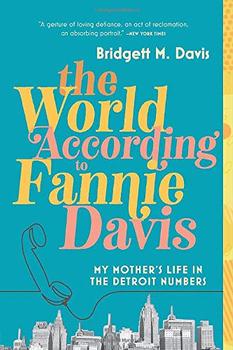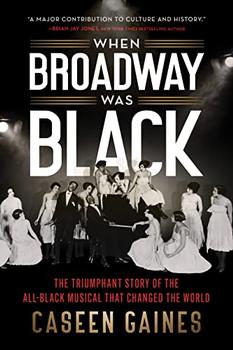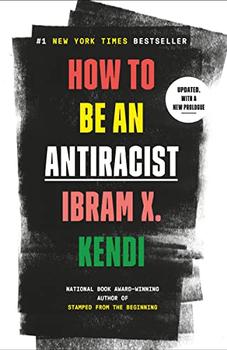Summary | Excerpt | Reviews | Beyond the book | Read-Alikes | Genres & Themes | Author Bio

My Mother's Life in the Detroit Numbers
by Bridgett M. DavisA singular memoir that tells the story of one unforgettable mother, her devoted daughter, and the life they lead in the Detroit numbers of the 1960s and 1970s.
In 1958, the very same year that an unknown songwriter named Berry Gordy borrowed $800 to found Motown Records, a pretty young mother from Nashville, Tennessee borrowed $100 from her brother to run a Numbers racket out of her tattered apartment on Delaware Street, in one of Detroit's worst sections. That woman was Fannie Davis, Bridgett M. Davis' mother. Part bookie, part banker, mother, wife, granddaughter of slaves, Fannie became more than a numbers runner: she was a kind of Ulysses, guiding both her husbands, five children and a grandson through the decimation of a once-proud city using her wit, style, guts, and even gun. She ran her numbers business for 34 years, doing what it took to survive in a legitimate business that just happened to be illegal. She created a loving, joyful home, sent her children to the best schools, bought them the best clothes, mothered them to the highest standard, and when the tragedy of urban life struck, soldiered on with her stated belief: "Dying is easy. Living takes guts."
A daughter's moving homage to an extraordinary parent, The World According to Fannie Davis is also the suspenseful, unforgettable story about the lengths to which a mother will go to "make a way out of no way" to provide a prosperous life for her family - and how those sacrifices resonate over time. This original, timely, and deeply relatable portrait of one American family is essential reading.
The World According to Fannie Davis speaks to broader social struggles related to class, race, gender and migrancy. This memoir captivates, balancing between the relatability of inter-generational family relationships—the admiration, tension, struggle and loss within them—and the magnetism of lucrative, risky black-market business...continued
Full Review
(830 words)
This review is available to non-members for a limited time. For full access,
become a member today.
(Reviewed by Jamie Chornoby).
 In The World According to Fannie Davis: My Mother's Life in the Detroit Numbers, Bridgett M. Davis explains how property ownership was the key determinant in creating opportunity and prosperity across generations of her family. However, historically, there have been hefty barriers to property ownership for people of color in the United States, ranging from racially-motivated violence to discriminatory legislation. The year that Bridgett's grandfather—a working-class tradesman—bought his first piece of land, 26 racial massacres struck Tennessee, later known as the "Red Summer of 1919." Ray Winbush, the director of Fisk University's Race Relations Institute, explains this relationship in basic terms: "If you're looking for stolen ...
In The World According to Fannie Davis: My Mother's Life in the Detroit Numbers, Bridgett M. Davis explains how property ownership was the key determinant in creating opportunity and prosperity across generations of her family. However, historically, there have been hefty barriers to property ownership for people of color in the United States, ranging from racially-motivated violence to discriminatory legislation. The year that Bridgett's grandfather—a working-class tradesman—bought his first piece of land, 26 racial massacres struck Tennessee, later known as the "Red Summer of 1919." Ray Winbush, the director of Fisk University's Race Relations Institute, explains this relationship in basic terms: "If you're looking for stolen ...
This "beyond the book" feature is available to non-members for a limited time. Join today for full access.

If you liked The World According to Fannie Davis, try these:

by Caseen Gaines
Published 2023
The triumphant story of how an all-Black Broadway cast and crew changed musical theatre—and the world—forever.

by Ibram X. Kendi
Published 2023
From the National Book Award–winning author of Stamped from the Beginning comes a bracingly original approach to understanding and uprooting racism and inequality in our society - and in ourselves.
Everywhere I go, I am asked if I think the university stifles writers...
Click Here to find out who said this, as well as discovering other famous literary quotes!